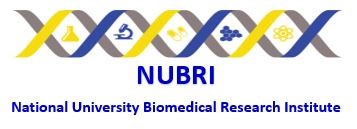Genomic Characterization of the SARS-CoV2 isolated from Sudan
Summary:
The 2019-20 coronavirus pandemic of coronavirus disease is causing severe acute respiratory syndrome coronavirus 2 (SARS-CoV2). The disease spreads rapidly and quickly compared to the previous pandemics, which makes it more difficult to contain given this current global public health threat and its consequences, there is an urgent studying the molecular mechanisms, and evolution of the SARS-CoV2, and preventive and therapeutic measures. Next-generation sequencing (NGS) has been applied successfully to various fields in virology, including virus discovery, whole-virus genome reconstruction, and minority variant analyses. In Sudan, most research carried out on corona-virus is in the primary stages and the exact mechanisms remain unknown.
Hence, the aim of this study is to characterize the full-genome sequence of SARS-CoV-2 strains from patients with COVID-19 in Sudan. The WGS will provide the highest possible resolution of information about the virus genome for a better understanding of the genetic makeup of the virus that could ultimately save lives by informing strategies for public health and clinical care, as well as facilitating the design of therapy to combat the virus.
Objectives:
To Analyze and Compare The Phylogenetic Relationships
To analyze and compare the phylogenetic relationships of the SARS-CoV-2 strains in Sudan With the regional and international strains.
To Develop a Machine Learning Approach
To develop a machine learning approach to predict protein-protein interactions (PPIs) between the human host and the SARS-CoV-2 virus.
To Understand The Molecular Mechanisms
To understand the molecular mechanisms of the SARS-CoV-2 using WGS.
To Perform Computational Approaches
To perform computational approaches for data analyses of viral mutation and drug repurposing in SARS-CoV2.
To Understand The Genomic Structure
To understand the genomic structure and variations of the SARS-CoV-2.
To Develop Machine Learning Tool
To develop machine learning tool to predict COVID-19 vaccine candidates.

